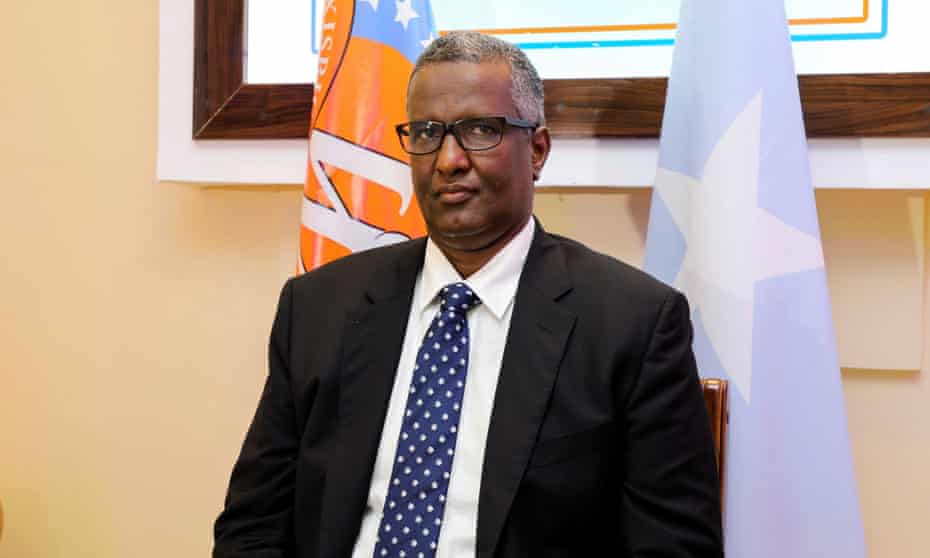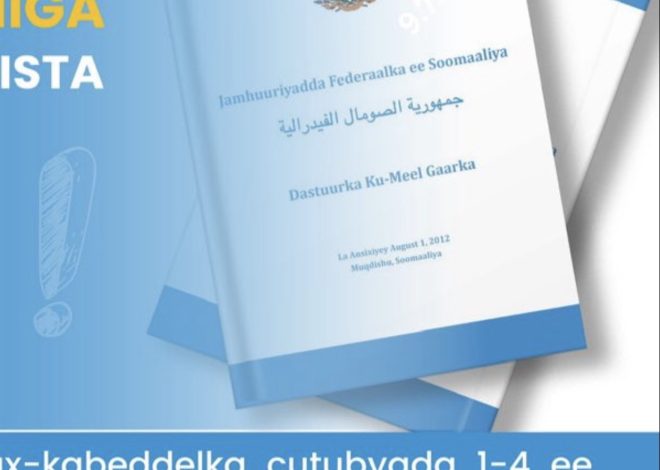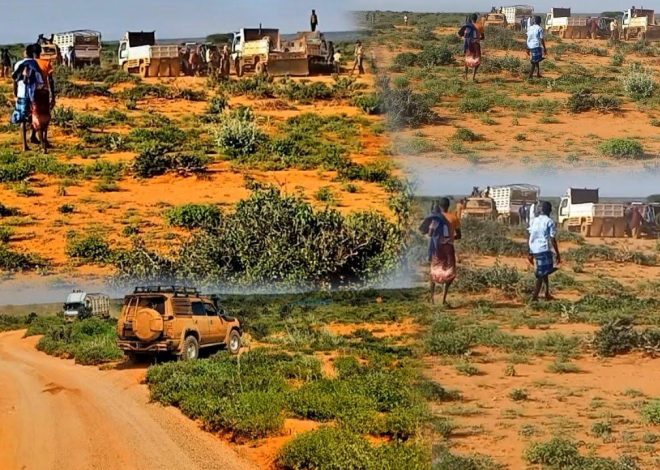UK’s lost leadership role hurts Somalia’s fight against famine, says drought envoy.
The UK has lost its leadership role in the world and is letting down its allies, a senior official in the Somali government has said.

Abdirahman Abdishakur Warsame, the presidential envoy for Somalia’s drought response, said Britain used to be second only to the US as a key player in international forums and advocacy, but has since slipped, saying that countries such as Somalia were being left without support to face “the new climate reality”.
The UK has lost its leadership role in the world and is letting down its allies, a senior official in the Somali government has said.
Abdirahman Abdishakur Warsame, the presidential envoy for Somalia’s drought response, said Britain used to be second only to the US as a key player in international forums and advocacy, but has since slipped, saying that countries such as Somalia were being left without support to face “the new climate reality”.
In an interview with the Guardian, Abdishakur said it was deeply frustrating that the international community was ignoring impending famine and failing to meet the longstanding pledge of letting poorer nations access a £87.5bn climate fund to mitigate the crisis.
“We are living with the deadly consequences of climate change in Somalia,” he said. “Millions of children are malnourished, many will die, and we don’t have one penny of that climate fund.”
Currently in Europe to drum up support for Somalia’s crisis, the special envoy said it had been a dispiriting round of meetings with government officials. “No one is interested in the climate, in food security. It’s all Ukraine, Ukraine, Ukraine. It gets all the political attention.
“Everyone has been saying, ‘When you have famine declared you will have attention,’” he said. “We are facing more than the scale of 2011, when we lost a quarter of a million of our people. But in 2011 half the people died before famine was declared.”
Abdishakur insisted his country was worth more support. “We are more than famine in Somalia. We are coming out of a long conflict and have had a successful, peaceful election; we are building our institutions, we are building our national army, we are pushing back [the Islamist insurgents] al-Shabaab. But at the same time we have this drought.
“In the 2017 drought, the UK and its leadership was vital, its advocacy and energy was great, and it encouraged people like me to match that commitment. Britain was a great ally to Somalia but that is all gone.
“The UK is still an ally, and they help with security, but when it comes to humanitarian response they are not there, not in leadership or in aid. It’s all gone. The UK used to provide a leadership that others would follow.”
Abdishakur said access to climate crisis funds would enable Somalia to bring in technology and infrastructure to support and build farming and fisheries.
“Somalians are resilient people. They cope with all the pressures of insecurity and drought, and the world can learn from them how to be resilient in the face of such pressure,” he said.
“There is a strong sense of community and clan. The remittances from the Somalian diaspora going into the country are holding people up, families together – $2bn [£1.8bn] a year is sent home, more than any aid or donations.”
But, he said, support from countries such as the UK was essential.
“If we had not had Ukraine, Covid and the locust invasion then the effect might be less, but the drought is caused by climate change. We have had four failed rainy seasons now. The cycle of drought used to be every 10 years, now it’s four years and soon it will be two years.
“That is not caused by Somalia – that was caused by the climate crisis.”
Sorcy: The Guardian



